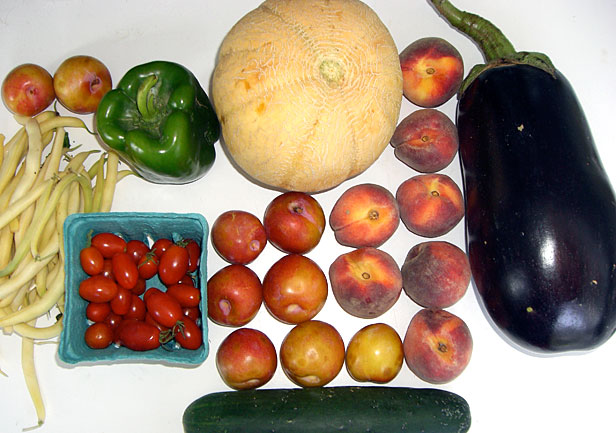For years, the Environmental Working Group has warned consumers away from "The Dirty Dozen," the 12 fruits and vegetables that contain the most trace pesticides. But the produce industry has had enough of this anti-vegetable propaganda! A consortium of food groups, from the American Mushroom Institute to the National Watermelon Association Inc., is mounting a campaign to reassure consumers that it's perfectly safe to eat pesticide-laden products.
Industry groups are writing to Agriculture Secretary Tom Vilsack to ask him to publish data about pesticide residue with context explaining that the amount of pesticides found on their products really isn't that big of a deal. They also have an interactive website that lets consumers find out how many servings of the maligned fruits and veggies one can eat each day without suffering adverse effects from pesticides. (Women can eat 263 servings of peaches, which ranks number one on the Dirty Dozen, each day; men, 318.)
To back up its claims, the group behind the website, The Alliance for Food and Farming, enlisted a group of scientists, who — no surprise here — have preexisting ties to industry. Dr. Penny Fenner-Crisp, for example, left the government in 2000 to work for the research branch of the International Life Sciences Institute, a group funded by corporations like ConAgra and Archer Daniels Midland.
The industry's spin is that evil environmentalists are trying discourage Americans from eating their fruits and veggies, which they really should eat! And sure, in farm workers, exposure to pesticides can lead to arthritis, throat problems, birth defects, and a host of other problems. But the small amounts that get into food — don't worry about those.



